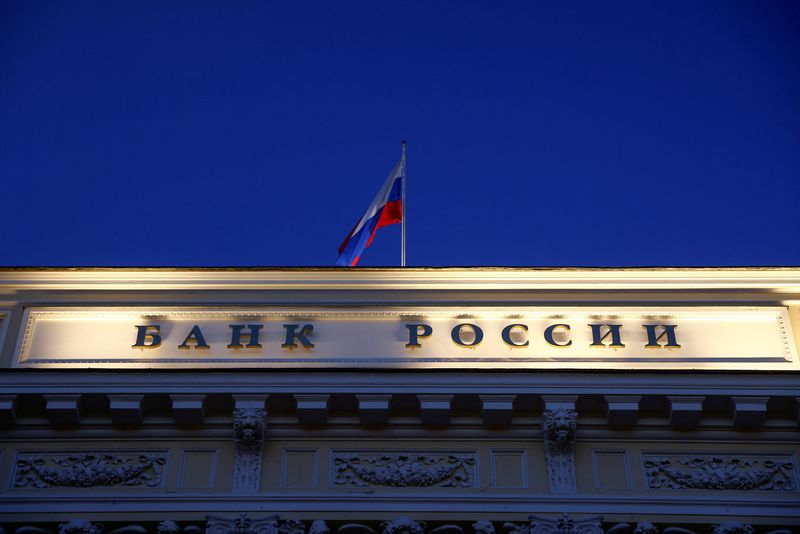By Emily Chan
TAIPEI (Reuters) - Some Taiwanese holders of Russian Eurobonds have not received interest due on May 27 after a grace period expired on Sunday evening, two sources said, potentially setting Moscow on track for its first major external sovereign default in over a century.
Russia was due to make $100 million in coupon payments on two Eurobonds on May 27 - $29 million on a euro-denominated 2036 bond and $71 million on a dollar-denominated 2026 bond.
Sweeping sanctions imposed by Western capitals on Russia in the wake of its invasion of Ukraine on Feb. 24 as well as counter measures by Moscow have all but severed the country from the global financial ecosystem. Russia calls its actions in Ukraine a "special operation".
Despite the plethora of curbs, Russia had managed to make payments on seven bonds since its invasion of Ukraine before the latest interest payments.
Moscow has scrambled in recent days to find ways of dealing with upcoming payments and avoid a default.
President Vladimir Putin signed a decree last Wednesday to launch temporary procedures and give the government 10 days to choose banks to handle payments under a new scheme, suggesting Russia will consider its debt obligations fulfilled when it pays bondholders in roubles.
One of the Taiwanese sources told Reuters that with the two Eurobonds in question there was "no rouble clause attached".
"The coupon cannot be paid in roubles instead," the source added.
Russian debt makes up less than half a percent of Taiwanese bond holdings.
Moscow has been at risk of a default since its invasion of Ukraine saw Western powers freeze hundreds of billions of dollars of its currency reserves it held abroad and cut off large parts of its banking system from world markets.
The Kremlin has repeatedly said there are no grounds for Russia to default but is unable to send money to bondholders because of sanctions, accusing the West of trying to drive it into an artificial default.
While a formal default would be largely symbolic given Russia cannot borrow internationally at the moment and doesn't need to thanks to rich oil and gas revenue, the stigma would probably raise its borrowing costs in future.
The country's efforts to swerve what would be its first major default on international bonds since the Bolshevik revolution more than a century ago hit an insurmountable roadblock when the U.S. Treasury Department's Office of Foreign Assets Control (OFAC) effectively blocked Moscow from making payments in late May.
Countries usually stop servicing their debt when they have little or no money left in international reserves and lack market access. But this case is different: A Russia default was unthinkable until recently with the country rated investment grade prior to the Ukraine invasion.

Russia has not had a default of any kind since a financial crash in 1998 and has not seen a major international or 'external' market default since the aftermath of the 1917 Bolshevik revolution.
Russia has some $40 billion of international bonds outstanding, around half of which are held by foreign investors.